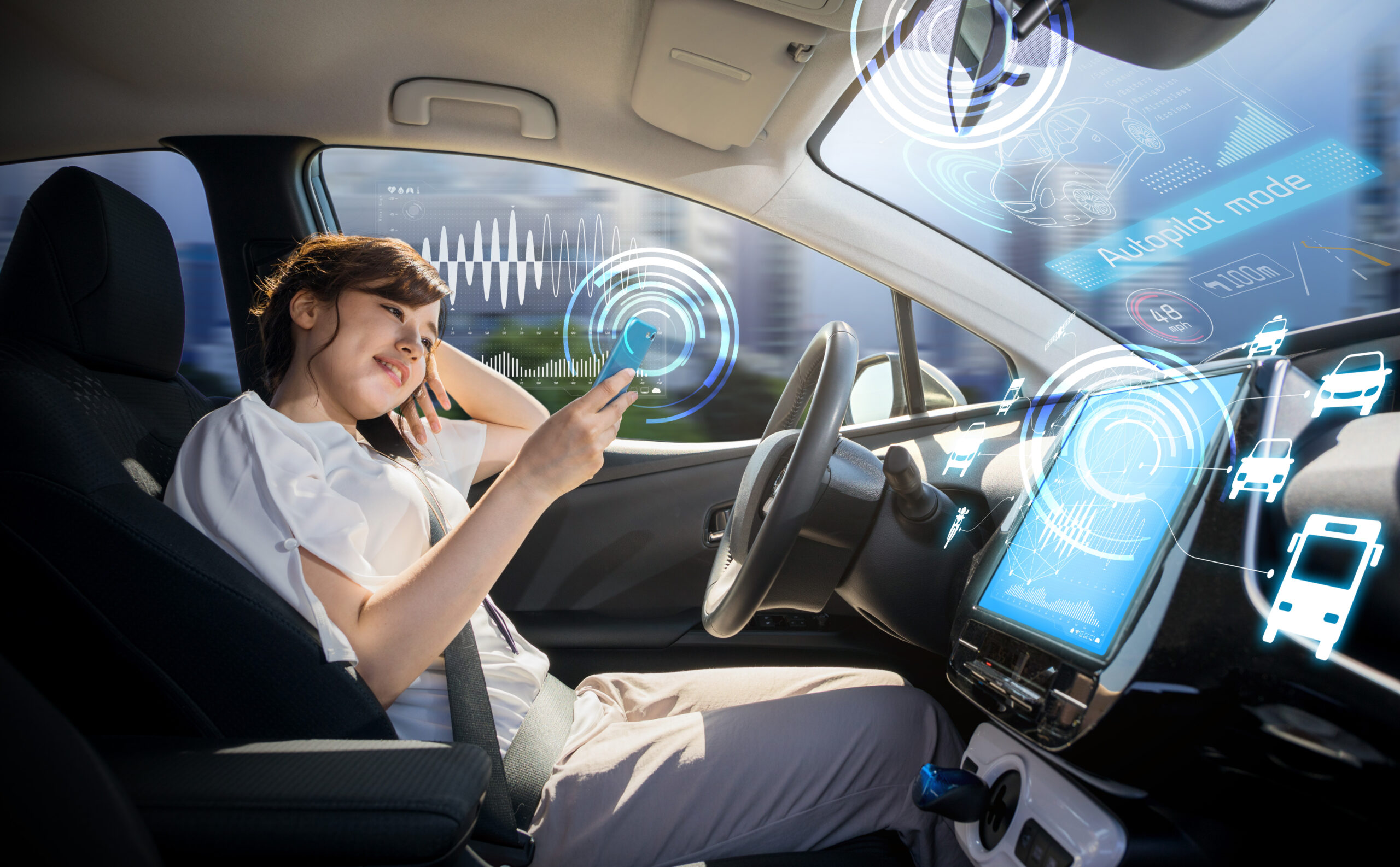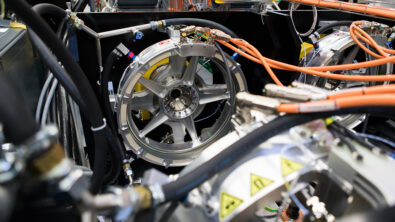In-cabin AI: The push to develop smarter, autonomous cars for the future

The quest for a true autonomous vehicle, or AV, is one being pursued by companies large and small the world over. But despite the promises of AV’s being “2 to 5 years” away and the breathtaking pace of technological advancement in the fields of AI and automation, the dream of having an AI drive you home from work is still solidly fixed in the middle distance. There is no doubt AI will be making its way into your car sooner rather than later. While AVs are the hot topic getting featured on the news, what most people don’t realize is that there is also a lot of innovation taking place inside the car thanks to the growing industry of in-cabin AI.
The ability to monitor both the driver and passengers in a car is one of growing importance, with the in-cabin AI market expected to reach $503.2 million by 2026[i] and new protocols from the European New Car Assessment Program (Euro NCAP) requiring advanced occupant status monitoring to detect driver fatigue and distraction to get the agencies five-star rating[ii], something companies are turning to AI to achieve. To many, myself included, the idea of having an AI watching inside your car isn’t all that appealing. Between the privacy concerns and the questionable benefit of many current “AI” assistants, it’s only natural someone would be hesitant to embrace what sounds like the latest fad in smart devices. But look a little closer and you start to see a different picture.
AI offers an unprecedented ability to understand what a human driver is thinking, doing, and feeling which manufacturers are leveraging to make driving safer and more comfortable. This level of understanding was impossible even just 10 years ago, car computer systems simply didn’t have the power to process vision data or run AI algorithms needed to interpret human emotion from facial features and body language, a technology that is only just maturing enough to start commercial testing. In 2019 alone distracted driving accounted for 8.7% of all car crash fatalities, 3,142 people, and about 280,000[iii] injuries in the US alone. With advances in in-cabin AI technology it’s possible to detect drowsiness, distraction, frustration and all manner of other driver impairments and take preventative action. A smart system might offer warnings and alerts, suggest pulling over, offer a less stressful route or show a place a tired driver can get a cup of coffee. In the not too distant future I also envision driver monitoring AI integrating with autonomous driving systems to head off potential tragedies should warnings come too late or prove insufficient, briefly taking over the driving to steer the car out of harm’s way.
While improving driver and pedestrian safety is always an admirable goal, I think everyone who’s ever ridden in a car hopes for an uneventful trip free of any accidents or need for AI warnings. So, assuming your trip was trouble-free, does that mean your AI copilot was silent and useless for the whole trip? No, not at all. Car manufacturers are developing the tools to use in-cabin AI to improve the driver and passenger experience by letting the car “learn” the habits of frequent riders.
For example, your car might learn that you like to listen to loud rock music on the way to work in the morning but more relaxing classical on the way home at night and set music and volume levels automatically. Likewise, your car can learn that you prefer to drive on side streets and back roads over busier main streets and offer route suggestions accordingly. From here the list goes on, everything from comfortable temperature, to favorite music, to preferred places to shop, having a car with in-cabin AI can help make any trip, be it a daily commute or a cross-country road trip, a more pleasant and frustration-free experience.
Driving is meant to be a convenience, but with as many features that need customizing that are packed into a car these days and with how much traffic is on the roads, comfort and convenience often fall by the wayside. People often put up with “good enough” because it’s too much work to tweak and tune every setting to their exact liking or find the easiest route to and from a destination when they have dozens of other things vying for time and attention. Now with a smarter car, getting comfort and convince doesn’t have to be a luxury for those with time to spare.
Everything from your phone to your TV is getting smarter and cars are no exception. While the industry still has a long way to go, both in terms of technology and building consumer trust, the long road ahead for in-cabin AI is one worth staying on. Cars are an integral part of life for millions of people the world over with people spending days or even weeks of their life in a car every year. So, I ask this: why shouldn’t we embrace a technology that will make those hours behind the wheel as comfortable, convenient, and above all, safe as possible?
Siemens Digital Industries Software is driving transformation to enable a digital enterprise where engineering, manufacturing and electronics design meet tomorrow. Xcelerator, the comprehensive and integrated portfolio of software and services from Siemens Digital Industries Software, helps companies of all sizes create and leverage a comprehensive digital twin that provides organizations with new insights, opportunities and levels of automation to drive innovation.
For more information on Siemens Digital Industries Software products and services, visit siemens.com/software or follow us on LinkedIn, Twitter, Facebook and Instagram.
Siemens Digital Industries Software – Where today meets tomorrow.
[i] https://finance.yahoo.com/news/global-cabin-automotive-ai-artificial-133000009.html
[ii] https://www.euroncap.com/en/vehicle-safety/the-ratings-explained/safety-assist/occupant-status-monitoring/
[iii] https://www.bankrate.com/insurance/car/distracted-driving-statistics/


